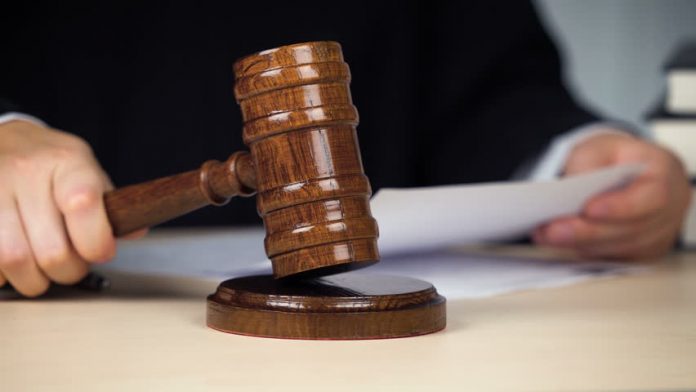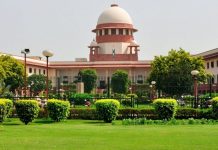This Article is written by Mehak Jain from Hidayatullah National Law University. This is an exhaustive article that aims to explain the Doctrine of Condonation of Delay and its principles.
Table of Contents
Introduction
Condonation of delay is a doctrine mentioned in the Limitation Act, 1963. The Act postulates time-limits for different suits and mentions the time period within which a suit, appeal or application can be instituted. The expiry of such time period leads to extinguishing the remedy of the aggrieved party.
This doctrine is an exception to the limitation period. According to this, if the aggrieved party can furnish “sufficient cause” for causing a delay in institution of suit leading to the expiry of the limitation period, the Court can, with discretionary jurisdiction disregard the delay or “condone the delay” and proceed with the case.
Condonation of delay under the Limitation Act, 1963
The Limitation Act, 1963
The Limitation Act of 1963 is legislation which specifies the time period within which a suit is instituted, and enumerates provisions in case the suit is not filed within the period prescribed by Act. The Act extinguishes the remedy to the party and not the right to file delayed documents in Court. Section 2(j) defines “period of limitation” as the time prescribed by the Schedule to institute any suit, appeal or application, and “prescribed period” as the period of limitation determined as per the provisions of the Act.
Period as prescribed in Schedule 1 to the Act
The period has been prescribed in Schedule 1 to the Act. Generally, it is as follows:
- 3 years time-period for a suit relating to accounts, contracts, suits relating to movable property, recovery of a lawsuit under a contract, etc.
- 12 years time-period for suits relating to possession of the immovable property, and 30 years time-period for suits relating to the mortgaged property.
- One year for suit relating to torts (3 years for compensation in certain cases). 30 to 90 days in case of appeals under the Civil Procedure Code and Criminal Procedure Code.
Meaning of Condonation
The term Condonation means that the offence (of ignoring the law of period as prescribed by the Act) is impliedly disregarded and the matter shall process as if no offence has been committed.
The Doctrine of Condonation of Delay
Condonation of Delay finds its mention in Section 5 of the Act which elaborates upon Extension of prescribed period in certain cases. According to it, any appeal or application may be admitted after the prescribed period if the applicant/appellant is able to satisfy the Court that they had “sufficient cause” for not instituting the appeal/application in the prescribed period.
What is “Sufficient Cause”?
The term “sufficient cause” isn’t defined explicitly and varies on a case-to-case basis. The Court has a wide discretion in determining what constitutes as sufficient cause, depending upon the facts and circumstances of each case.
In cases regarding non-appearance, adjournment or stay of execution of a decree, the cause must be just and adequate i.e. “sufficient” otherwise these provisions will just be a way of incessantly prolonging litigation. This principle has been advocated in furtherance of pursuance of justice but it shouldn’t deny someone of justice either.
In the case of G. Ramagowda v. Special Land Acquisition Officer, it was held that “sufficient cause” is to be interpreted liberally so as to pursue substantial justice.
Type of Jurisdiction
The Court has the discretion to condone the delay and admit the appeal. The Court has discretionary jurisdiction and even though sufficient cause has been shown, the party is not entitled to the condonation of delay as the same is left to the Court’s discretion.
Exceptions to Condonation of Delay – Section 5
There are certain exceptions relating to the ambit of the doctrine of condonation of delay (Section 5):
- The doctrine is applicable to Criminal Proceedings only.
- The doctrine does not include “suit” and only covers appeals and applications.
- Other than an application under any of the provisions of Order XXI of the Code of Civil Procedure, 1908. The doctrine covers all appeals and applications.

Rule 3A
Rule 3A has been inserted by the Amendment Act of 1976. According to it, an application must be filed in case an appeal is presented after the expiry of the prescribed period. The application has to state sufficient cause for causing a delay in filing an appeal. This rule was recommended by the Privy Council.
The practice of admitting such appeal subject to an opinion regarding limitation was disapproved by privy – council, and it stressed the need of adopting a procedure for settling the final determination of the question as to limitation before admission of appeal.
The Supreme Court, in the case of State of M.P v. Pradeep Kumar, observed two objects of this rule:
- To inform the appellant filing a time-barred appeal that his action won’t be entertained unless it is accompanied by an application substantiating sufficient cause.
- To communicate to the appellant that he may not have to be ready as the condonation of delay is a condition precedent to hearing their appeal.
General Principles under The Limitation Act
The two fundamental principles on which the Limitation Act primarily rests are as follows:
- Interest republicae ut sit finis lithium: It is for the public good that litigation comes to an end after a long hierarchy of appeals. Continuing to file further appeals may be equivalent to opening a floodgate which causes more wrongs than rights.
- Vigilantibus non dormentibus jura subvenitent: Law aids the vigilant and not asleep. Law will not assist those who are careless of their right. You should file the suit at the right time, during the limitation period. Law will not respond to carelessness on your part.
General Principles of the Condonation of delay
The Supreme Court, in the case of Collector Land Acquisition v. Mst. Katiji prescribed certain principles which need to be followed while administering the doctrine of condonation of delay:
- Ordinarily, the litigant doesn’t stand to benefit by instituting an appeal late.
- If the Court is refusing to condone the delay, it can result in a meritorious matter being discarded and the roots of justice being defeated. However, when a delay is condoned, the highest that can happen is that the case will be decided on merits, i.e. a decision based on evidence rather than on the technical and procedural ground.
- Every day’s delay must be explained” does not mean the doctrine is to be applied in an irrational manner. It must be applied in a sensible manner and not a literal one.
- Between substantial justice and technical considerations, the former deserves to be preferred for the other side cannot claim that injustice is done because of a bona fide delay.
- There is no presumption that delay is caused deliberately. The litigant has nothing to gain by resorting to delay and runs a serious risk.
Instances where condonation can be granted
The following are the instances where condonation can be granted:
- Subsequent changes in the law.
- Illness of the party: It includes the nature and severity of disease and facts encompassing the failure to act.
- Imprisonment of the party: However, mere detainment is not sufficient to cause. Varies on a case-to-case basis.
- Party is a pardanashin woman.
- Party belongs to a minority group with insufficient funds.
- Poverty or paupers.
- Party is a government servant: A government servant may not have an incentive in fulfilling the task. Therefore, a certain latitude is permissible in such a case.
- Delay due to the pendency of the writ petition.
- Party is illiterate.
- Other adequate grounds: Mistake of Court, Mistake of Counsel, Delay in getting copies, mislead by rulings, etc.
Leading Judgments
-
Balakrishnan v. M.A. Krishnamurty
By the means of this judgment, the need for a “rule of limitation” was justified. Rule of limitation hasn’t been incorporated to destroy the right of parties, but to ensure that the parties don’t resort to dilatory tactics and seek their remedy promptly. The Law of limitation fixes a life span for such legal remedy. Unending lifespan would’ve led to unending uncertainty. The Court held that the law of limitation is thus founded on public policy.
-
Ramlal, Motilal & Chotelal v. Rewa Coalfields Ltd.
In this case, the Court held that while interpreting Section 5 of the Limitation Act, two important considerations need to be made:
- In case of expiry of prescribed period of prescription, a right in favour of the decree-holder arises, according to which the decree can be treated as binding between the parties.
- If sufficient cause of delay in filing appeal has been given, it is the Court’s discretion to condone the delay and admit the appeal.
The fact that the appellant was misled by tools of the High Court in computing the limitation period is sufficient cause under Section 5 to condone the delay.
Appeal was granted.
-
Shakuntala Devi Jain v. Kuntal Kumari
In this case, the question before the Court was whether the delay in filing appeal should be condoned under Section 5 of the Limitation Act. As laid down in this case, Section 5 of the Limitation Act gives Court discretion, which has to be exercised in a way in which judicial power and discretion ought to be exercised upon well-understood principles. The words “sufficient cause” need to receive a liberal construction. The Bench of three Judges held that unless want of bona fides of such inaction or negligence as would deprive a party of the protection of Section 5 is proved, the application must not be thrown out or any delay cannot be refused to be condoned.
The appeal was allowed and the delay was condoned.
-
New India Insurance Co. Ltd. V. Shanti Misra
What constitutes sufficient cause can’t be laid down by hard and fast rules. In this case, it was held that discretion given by Section 5 shouldn’t be defined or made concrete in such a manner that it converts a discretionary matter into a rigid rule of law.
-
Lala Mata Din v. A. Narayan
The question before the court is whether a mistake was bona fide or was it merely a way to cover an ulterior purpose. In this case. It was held that the accused was not to be blamed for a delay in filing appeal and it was to be attributed to advice of his counsel. The accused had no underhand to do so. Other than that, the rule had been misread by the counsel, meaning that the mistake committed by the counsel was bona fide and not influenced by any mala fide intent.
The delay was condoned and the appeal dismissed.
-
State (NCT of Delhi) v. Ahmed Jaan
The petitioner had filed an appeal for condonation of delay, however the file got mixed up in the Registry of High Court. The question before the court was whether to allow delay in filing and re-filing of appeals. In this case, it was held that what counts is not the length of the day but the sufficiency of a cause i.e. the Court should follow a pragmatic and rational approach in explaining every single day’s delay.
The delay was condoned and appeal thereby dismissed.
-
Kunwar Rajendra Singh v. Rai Rajeshwar Bali and others
The judicial committee, in this case, pointed out that if a party in a particular manner due to wrong advice given by their legal advisor, they cannot be held liable for negligence and can still be permitted to plead under Section 5 of the Limitation Act. The Committee also observed that mistaken advice given by a legal advisor in a particular case can be held to be sufficient cause.
The appeal was allowed.
-
IOCL v. Subrata Borah Chowlek
It was held that though a certain amount of latitude is admissible in cases involving government since the government official carrying out does not have an incentive to do so.
Conclusion
The Law of Limitation and Condonation of Delay are two effective tools for effective litigation and quick disposal of cases. The Law of Limitation ensures that the case is filed within the prescribed period so as to avoid unnecessary delays and is the epitome of the maxim, Vigilantibus non dormentibus jura subvenitent. On the other hand, condonation of delay is the safeguard to the law of limitation and bars certain cases in which the delay in filing the suit is justifiable, i.e. can be backed by having “sufficient cause”.
There are cases where the Court didn’t allow condoning the delay of one day, and there are cases where the Court excuses delay of several years. It varies from case-to-case and the Court has discretionary jurisdiction to determine whether a case is suitable for condonation or not.
LawSikho has created a telegram group for exchanging legal knowledge, referrals and various opportunities. You can click on this link and join:
https://t.me/joinchat/J_0YrBa4IBSHdpuTfQO_sA
Follow us on Instagram and subscribe to our YouTube channel for more amazing legal content.
 Serato DJ Crack 2025Serato DJ PRO Crack
Serato DJ Crack 2025Serato DJ PRO Crack










 Allow notifications
Allow notifications


